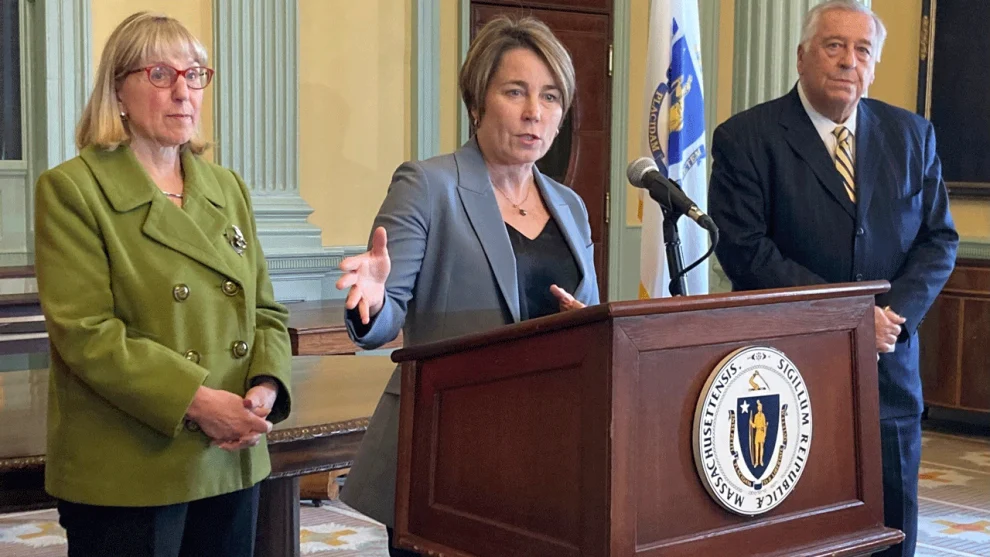BOSTON (AP) — Families staying in overflow shelter sites in Massachusetts will soon have to document each month their efforts to find a path out of the overflow system, including looking for housing or a job, Massachusetts Gov. Maura Healey announced Monday.
Beginning May 1, families will have to be recertified monthly to remain eligible to stay in the state-run overflow sites.
MASSACHUSETTS SENATE PASSES BILL CRIMINALIZING ‘REVENGE PORN’
They will need to show what steps they’ve taken to work toward independence, including applying for work authorization permits, participating in a workforce training program, submitting job applications, taking English classes or searching for housing, according to the administration.
Healey said the requirement is critical as a means of accountability.
“It’s important as we look to manage this responsibly,” she told reporters Monday.
Healey acknowledged there could be good reasons why certain individuals are not able to fulfill the requirements, but warned those who aren’t putting in the effort could lose their place in line for the state’s shelter system.
“If they don’t have a good reason for not fulfilling requirements then they will lose their spot,” she said. “The whole idea of this is to divert people from our emergency shelter system, to get them on a different path.”
The policy does not apply to sites operated by the United Way of Massachusetts Bay, a charitable organization.
Immigrant advocates say they’re worried the new regulations will complicate the lives of homeless migrants who are already focused on leaving the shelter system.
“We are deeply concerned that forcing families to reapply for emergency shelter each month will create unnecessary red tape, sow confusion, and ultimately, place more families on the street,” said Elizabeth Sweet of the Massachusetts Immigrant and Refugee Advocacy Coalition.
State and federal officials should instead focus on providing community service organizations the resources they need to support arrivals in pursuing work authorization, long-term housing and case management services, she said.
Massachusetts has been grappling with the growing influx of homeless migrant families seeking shelter.
The state’s Emergency Assistance family shelter system serves homeless families with children or pregnant women. Less than half of families in EA are new arrivals to Massachusetts, officials said.
Last fall, the administration announced that the system could no longer safely or responsibly expand and set up a waiting list. Families who qualify for emergency shelter and are on the waiting list are eligible to stay at the state’s overflow or safety-net sites, currently providing shelter for about 200 families.
The administration also announced Monday that it will be opening a new overflow shelter site next month in Chelsea at the former Chelsea Soldiers’ Home. The site is vacant and is eventually slated to be demolished.
At full capacity, the Chelsea site will be able to accommodate approximately 100 families.
The announcement comes after the Massachusetts Senate last week approved limits on how long homeless families can stay in emergency state shelters as part of an $850 million plan to fund the system at the center of the migrant crisis.
Under the bill approved late Thursday by a vote of 32-8, the state would limit maximum stays to nine months with the possibility of 90 more days for veterans, pregnant women and people who are employed or enrolled in a job training program.
CLICK HERE TO GET THE FOX NEWS APP
Currently, there are no limits on the time a family can spend in emergency housing.
A bill already passed by the House would provide funding covering the rest of the 2024 fiscal year that ends June 30 and part of 2025. The two bills are expected to go to a conference committee to hammer out a single compromise bill before it’s shipped to Democratic Gov. Maura Healey’s desk for her signature.
























